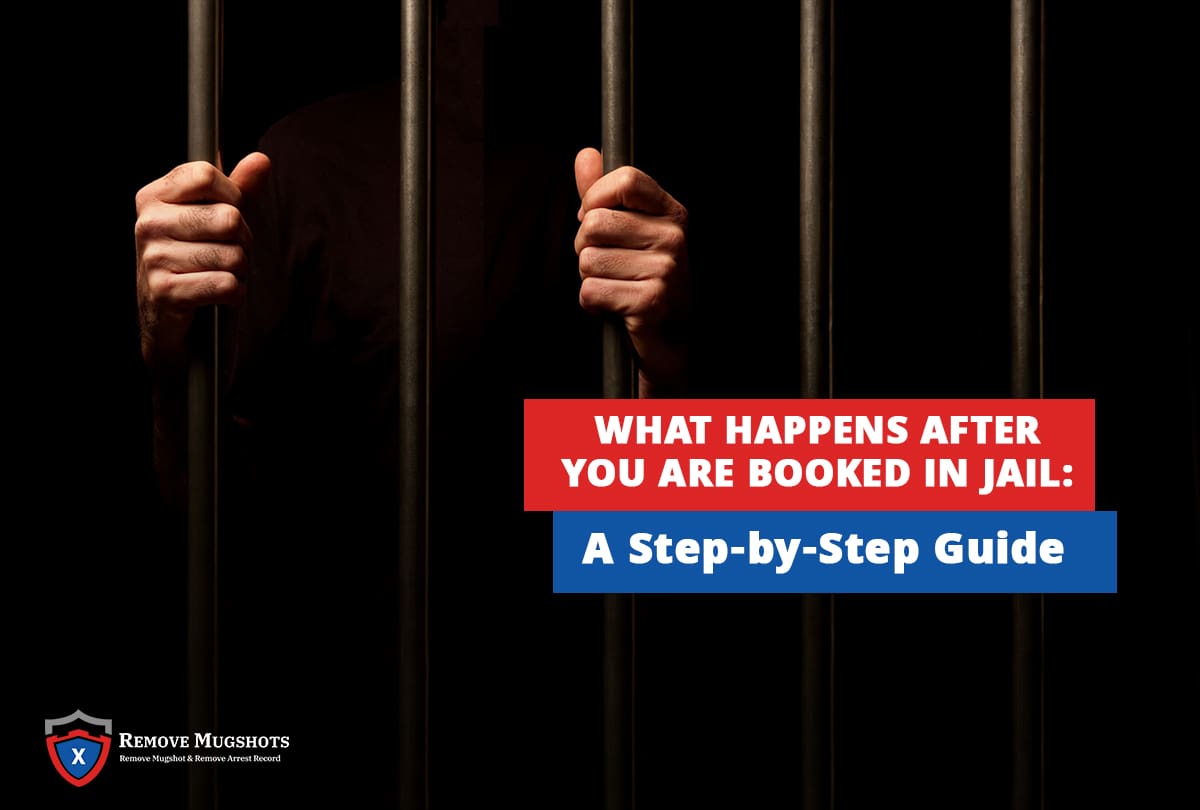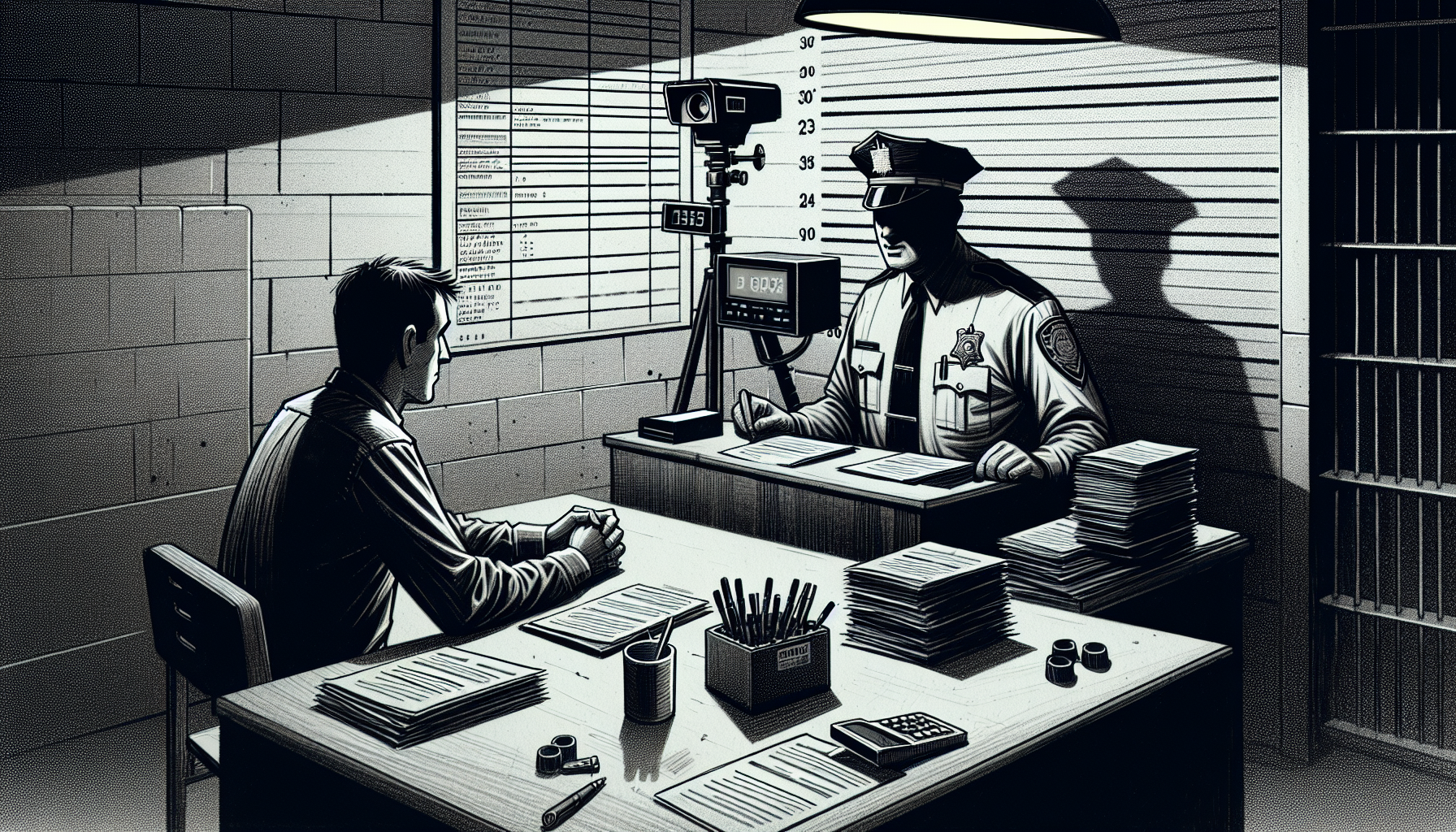What Happens After You Are Booked in Jail: A Step-by-Step Guide
August 29, 2024 Legal Tips

Feeling overwhelmed after an arrest is expected, so understanding what comes next is important. Usually, you’re taken to a county jail facility, where your personal items are logged, your photo is taken, and health checks are done.
These early steps can significantly impact your case, so staying informed and seeking legal advice is key. Knowing what to expect can help you prepare and protect your rights, whether you’re the one arrested or a worried family member.
The Booking Process Explained
The booking process is a thorough procedure aimed at documenting and ensuring safety for everyone involved. It includes key steps like recording personal details, taking mug shots and fingerprints, and securing personal property. When you’re booked, booking officers gather information like your name, address, and details of the alleged crime to create an official arrest record and conduct searches.
A mug shot is taken to document your appearance and physical condition at the time of arrest, while fingerprints help establish your criminal record. Personal belongings are confiscated, stored safely, and returned upon release unless needed as evidence. A strip search involves removing all clothing to check for dangerous objects or contraband, which is often part of the booking procedure.
Health and Safety Checks
Health and safety checks during booking are essential for protecting both inmates and staff. These checks involve a medical evaluation to identify immediate health concerns, such as infections or chronic conditions, ensuring that everyone in the facility remains safe.
Health screenings include blood tests to detect sexually transmitted diseases, such as gonorrhea and HIV/AIDS. Additionally, mental health assessments are conducted to spot any psychological issues that might require attention, helping to prevent harm to the individual or others. These evaluations are vital for maintaining a secure and healthy environment within the facility.
Initial Incarceration Conditions in County Jail
After booking, individuals are placed in holding cells based on their health assessments and any risk factors like gang affiliations. This careful placement helps prevent violence and ensures everyone’s safety. Officers gather information about medical needs and mental health during intake to provide proper care. A full body search is also conducted to check for hidden contraband, crucial for maintaining order and safety within the facility.

Legal Rights and Procedures
The booking process often starts at the police station, where the official arrest record is created. Invoking your right to remain silent is crucial during police questioning, as it protects you from saying something that could be used against you later in court.
This is part of your Miranda rights, which must be read before interrogation. During booking, officials also check for outstanding warrants, impacting whether you’re released, even if you post bail. These warrants could be for something as minor as unpaid parking tickets or more severe charges.
Posting Bail and Release Options
After booking, you have the right to a bail hearing where the terms of your release are set. The bail amount is influenced by factors like the severity of the crime, and understanding the process of posting bail can help you prepare.
You can post bail through a bail bondsman, who usually charges a percentage of the total bail amount to secure your release. Once released, you’ll receive a schedule of court appearances and necessary paperwork outlining your rights and obligations, which you should follow closely to stay informed about your legal process.
Preparing for Pretrial Hearings and Court Appearances
Preparing for court appearances is crucial to ensure a fair trial. Your first court appearance, known as the arraignment, is when you’re formally informed of the charges against you and must enter a plea. Understanding what happens during this step helps you and your attorney plan your defense.
Following the arraignment, a preliminary hearing determines if there’s enough evidence to go to trial. Working closely with your lawyer during this time is essential for developing a solid defense strategy and protecting your rights as your case progresses.
Consequences of Missing Court Dates
Missing a court date can have serious consequences, like arrest warrants, fines, or additional charges. If you’ve posted bail and don’t show up, a warrant will be issued for your arrest, making your legal situation even more complicated. Attending all your scheduled court dates is essential to avoid these issues.
Summary
Understanding what happens after an arrest is key to protecting your rights and getting through the legal process. From booking and health checks to knowing your rights and showing up for court, every step matters in ensuring a fair outcome.
Staying informed and working with a lawyer can help you navigate these stages and aim for the best possible result. Knowing what to expect can make a big difference in handling the situation.



